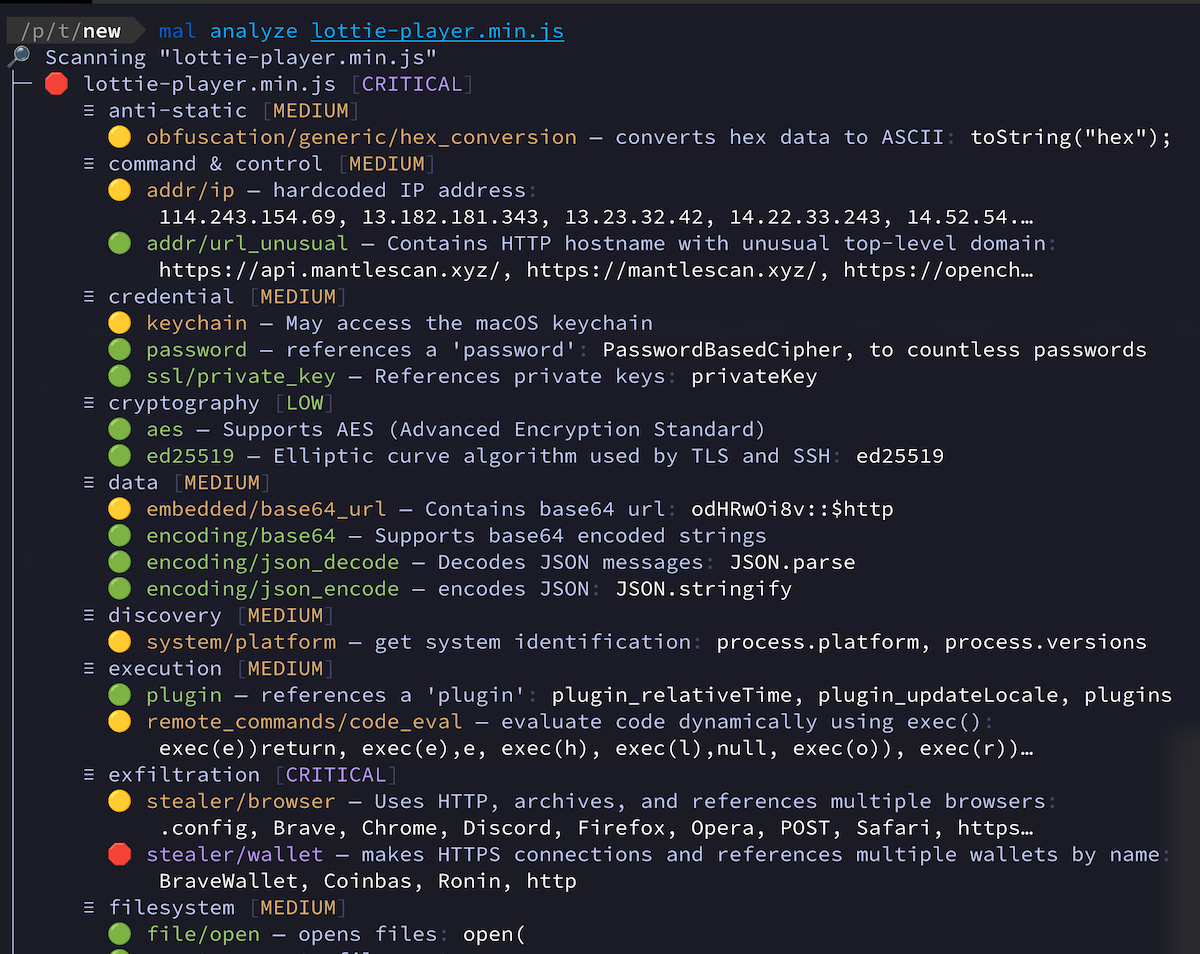_ _ _. . _ _ _ . ___ _. _ . ___
( | ) (_| |_ (_ (_) ( \_) | (/_ ( \_) |
the paranoid open-source malware scanner
malcontent is a malware scanner and analysis tool for high-risk environments such as CI/CD pipelines. Its goal is to reveal novel undiscovered malware, and is overtly paranoid and highly prone to false positives.
malcontent offers 3 modes of operation depending on your use case:
scan: find malicious content across a variety of file formatsanalyze: deep analysis of a program's capabilitiesdiff: show the capability differences between two versions of a program
NOTE: malcontent is a work in progress and has a higher false-positive rate than we would like; we're working on it!
- 16,000+ YARA detection rules!
- Including third-party rules from esteemed organizations such as Avast, Elastic, FireEye, Mandiant, Nextron, ReversingLabs, and more!
- Analyzes binaries for nearly any environment (Linux, macOS, Windows, etc.)
- Analyzes scripts (Python, shell, Javascript, Typescript, PHP, Perl)
- Analyzes container images
- Transparent archive support (apk, tar, zip, etc.)
- Multiple output formats (JSON, YAML, Markdown, Terminal)
Scan directories for possible malware:
You can also scan a container image: mal scan -i cgr.dev/chainguard/nginx:latest
Useful flags:
--include-data-files: Include files that do not appear to be programs--processes: scan active process binaries (experimental)
To analyze the capabilities of a program, use mal analyze. For example:
The analyze mode emits a list of capabilities often seen in malware, categorized by risk level. It works with programs in a wide variety of file formats and scripting languages.
CRITICAL findings should be considered malicious. Useful flags include:
--format=json: output to JSON for data parsing--min-risk=high: only show high or critical risk findings
To detect unexpected capability changes, try diff mode. Using the 3CX Compromise as an example, we're able to use malcontent to detect malicious code inserted in an otherwise harmless library:
Each line that begins with a "+" represents a newly added capability.You can use it to diff entire directories recursively, even if they contain programs written in a variety of languages.
For use in CI/CD pipelines, you may find the following flags helpful:
--format=markdown: output in markdown for use in GitHub Actions--min-file-risk=critical: only show diffs for critical-level changes--quantity-increases-risk=false: disable heuristics that increase file criticality due to result frequency
docker pull cgr.dev/chainguard/malcontent:latest
Requirements:
- yara - the rule language
- go - the programming language
- pkg-config - for dependency handling, included in many UNIX distributions
For example, to install the YARA library on Linux or macOS:
brew install yara || sudo apt install libyara-dev \
|| sudo dnf install yara-devel || sudo pacman -S yaraInstall malcontent:
go install github.com/chainguard-dev/malcontent/cmd/mal@latestmalcontent is an honest-to-goodness open-source project: if you are interested in contributing, check out DEVELOPMENT.md



